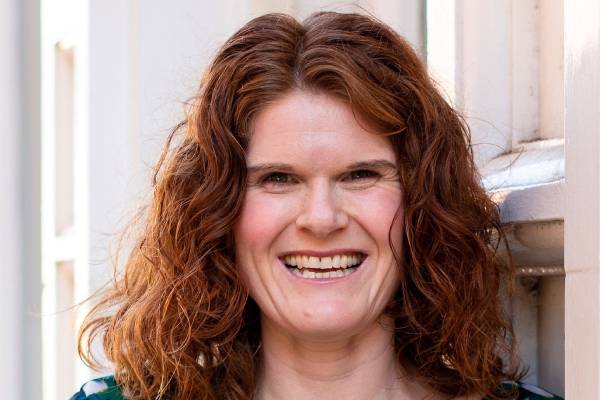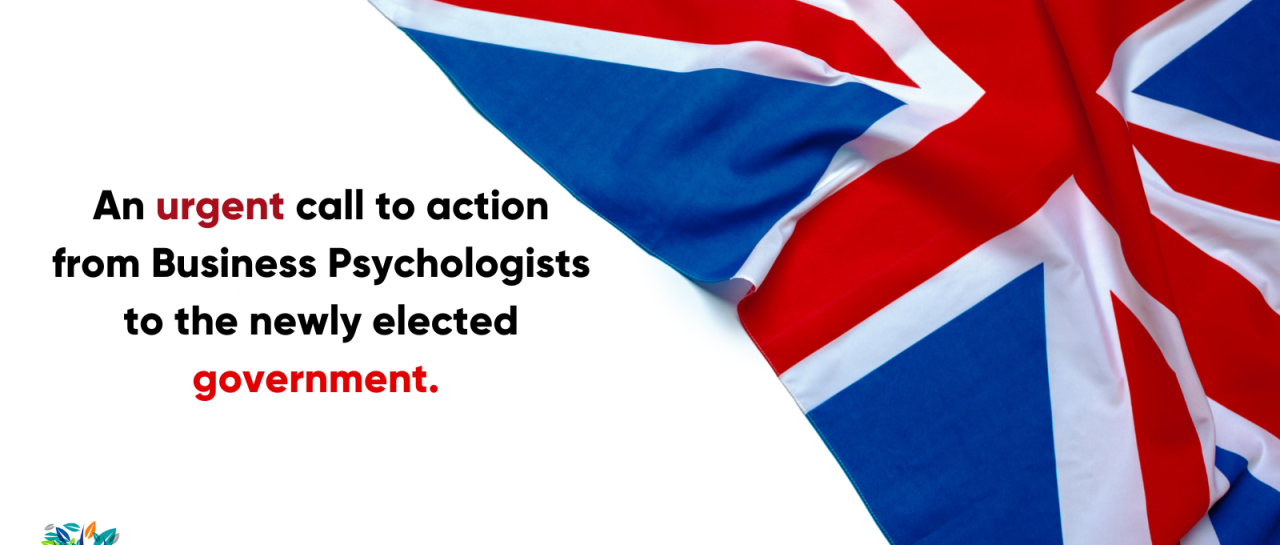Authored by Certified Business Psychologist Laura Howard. Certified Business Psychologist, Laura Howard, reflects on the webinar she recently delivered to ABP members. Below she outlines the main findings of her published research uncovering systematic barriers women face when being authentic as leaders. Importantly, she gives…

With the expertise and influence we have on client organisations, should Business Psychologists be taking a stronger stance on encouraging and developing sustainable practices in business? In my view, we’d be silly not to!
Our industry hasn’t yet planted its flag in acknowledging and addressing the climate emergency. Of course, some individuals take more proactive action based on their own values or area of expertise, but are we missing a trick by not taking a collective stand?
There seems to be a feeling of not being in the right position to make a difference, or perhaps that this problem is best addressed by policy makers and technologists. Either way, psychology is still to make a decisive and consistent impact on the sustainability issue.
Those working during the glory days of ‘Nudge Units’ may remember when everyone, professional and public alike, seemed to be fascinated by the subtle effects of psychology, and started to understand how it permeates all of life. That psychology isn’t only about therapists.
Governments took the initiative to use psychological understanding to make policy changes and set directives. A lot of that work (at least that was covered in the media) focused on improving health and it moved rapidly into other organisations set on improving their employees’ health, understanding that it would pay off in improved productivity, cost savings and increased motivation.
Now that more environmental regulations are being set and some businesses are starting to lose out on work and income by not addressing their sustainability credentials, we are in the prime position to help the organisations we work with be more aware, more receptive, and more successful at progressing sustainability initiatives, by first understanding the psychology of work that underpins it.
I don’t need to tell you this, but businesses are full of people. Any organisation that is taking sustainability seriously needs to widen their thinking to incorporate the psychology behind what they are asking their staff to achieve. And if they are savvy, they’ll also want to understand the effects that sustainability practices HAVE on their staff.
We hold a unique and subtly powerful role as external experts. With the influence we have on how to direct a conversation, on the suggestions we make and solutions we can offer, we guide our clients into new ways of thinking all the time. One of the easiest things we can do to make an impact, is ask the opening question. Something I have learned in running ProjectMatch, is if you bring up sustainability to a client, they normally have something to say about it, but almost no one will bring it up first. A few, lightly probing, questions later and they’ve realised there is a fundamental layer of their workforce they don’t yet understand.
(If you are interested in the kinds of questions that get businesses thinking about this, there are many examples in this digital booklet)
My open question to us all is, are we employing enough of what we know about human behaviour to the issue of sustainability?
What we can offer isn’t limited to our interactions with clients, we can also guide the next wave of Business Psychologists. Are we giving them enough opportunities to learn about the effects of climate change on businesses and to practice initiating conversations about sustainability? What can we do to help them build confidence in discussing this topic, with business leaders and clients?
I would argue that we have an even better opportunity here for making a difference. Talk about pushing at an open door! I’ve spoken with so many business leaders that have noted (or worse, complained) that the younger generation of the workforce want to do purposeful work. They want to make a difference, to explicitly see the value of their work on the world around them. Which is handy, because that is exactly the attitude and work ethic that is needed to change the course we are on for sustainability. What we need to do, as the older generation, is give them all the tools we can do to a fantastic job at it.
So, do Business Psychologists have a responsibility to drive sustainability? I’m not sure that responsibility is the right word. I think it is fundamentally our business to take appropriate action, that is within our knowledge and capabilities, to move psychology down this path. This is an issue that faces people in work, and people in work is our business. Therefore, we have no real choice but to tackle it head on.
But I do have a secret hope that in the very near future, we will start to see as many ‘Sustainability Business Psychologists’ as we do ‘Leadership’, ‘Well-Being’ and other specialisms in our domain. While we get there, I want to pose some questions to you…
Lecturers and Course Leaders: Is there space for adding in examples, lectures, maybe even a module that helps psychology students learn what they can do for sustainability?
Coaches and Mentors: Can you help those you work with identify their own thoughts and feelings on sustainability, and what impact they could have?
Consultants and Trainers: Could you open the space for a discussion on psychology and sustainability, and add in a couple of questions that get your clients thinking?
There needs to be much more practical research done on psychology and sustainability. To achieve this, and to do it well, we need individual organisations to want to understand themselves better, and to build their knowledge of their own peoples’ role in climate action. With it, they can properly ascertain the routes that are best, rather than taking on a quick and dirty, one-size-fits-all solution.
ProjectMatch is playing its small part with the launch of its new People & Planet programme, a competition for Occupational and Business Psychology student dissertations that focus on this theme of sustainability and working with a business partner. To find out more, visit www.project-match.com/people-and-planet.
Leanne Kenyon
Founder and Director, ProjectMatch Ltd




